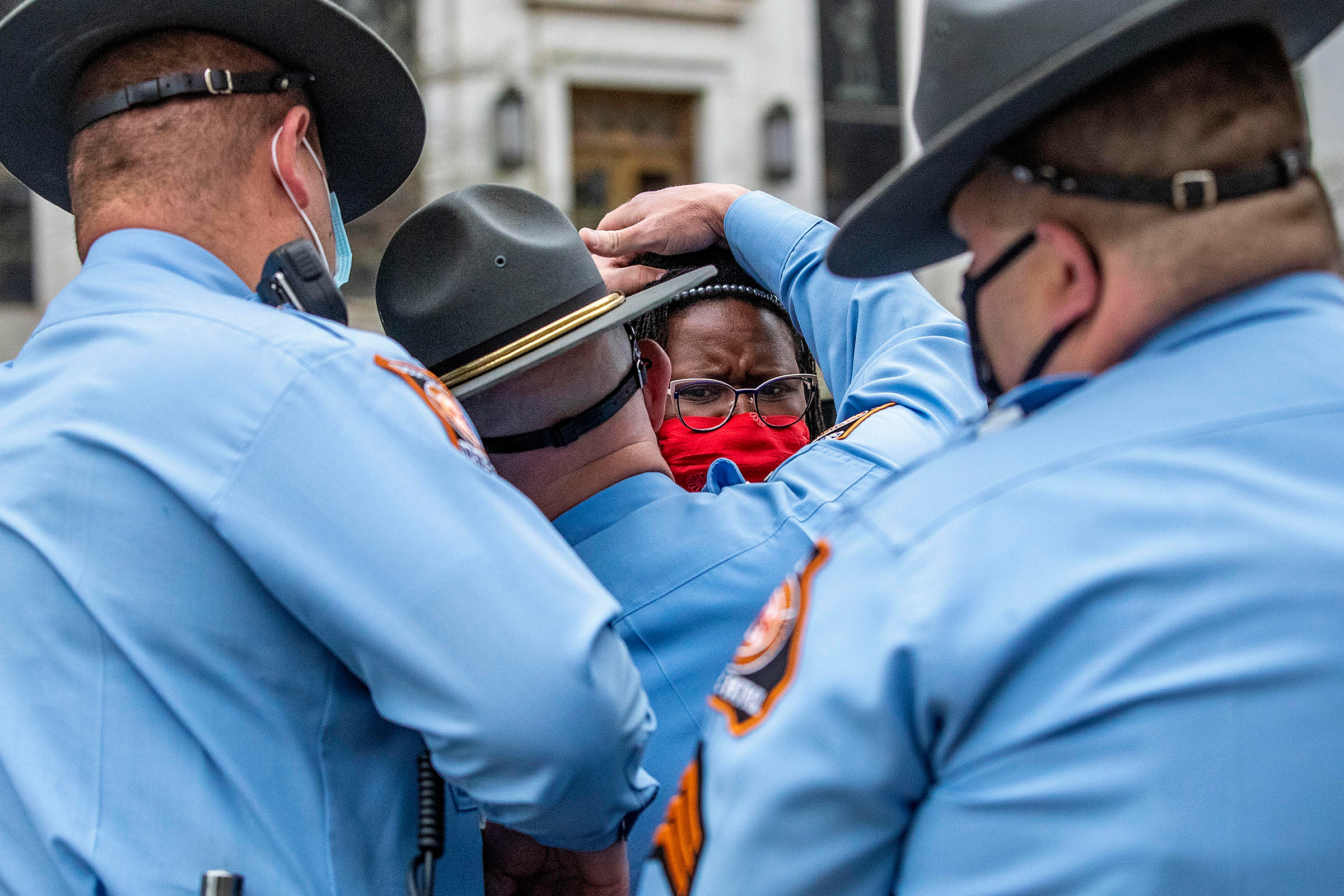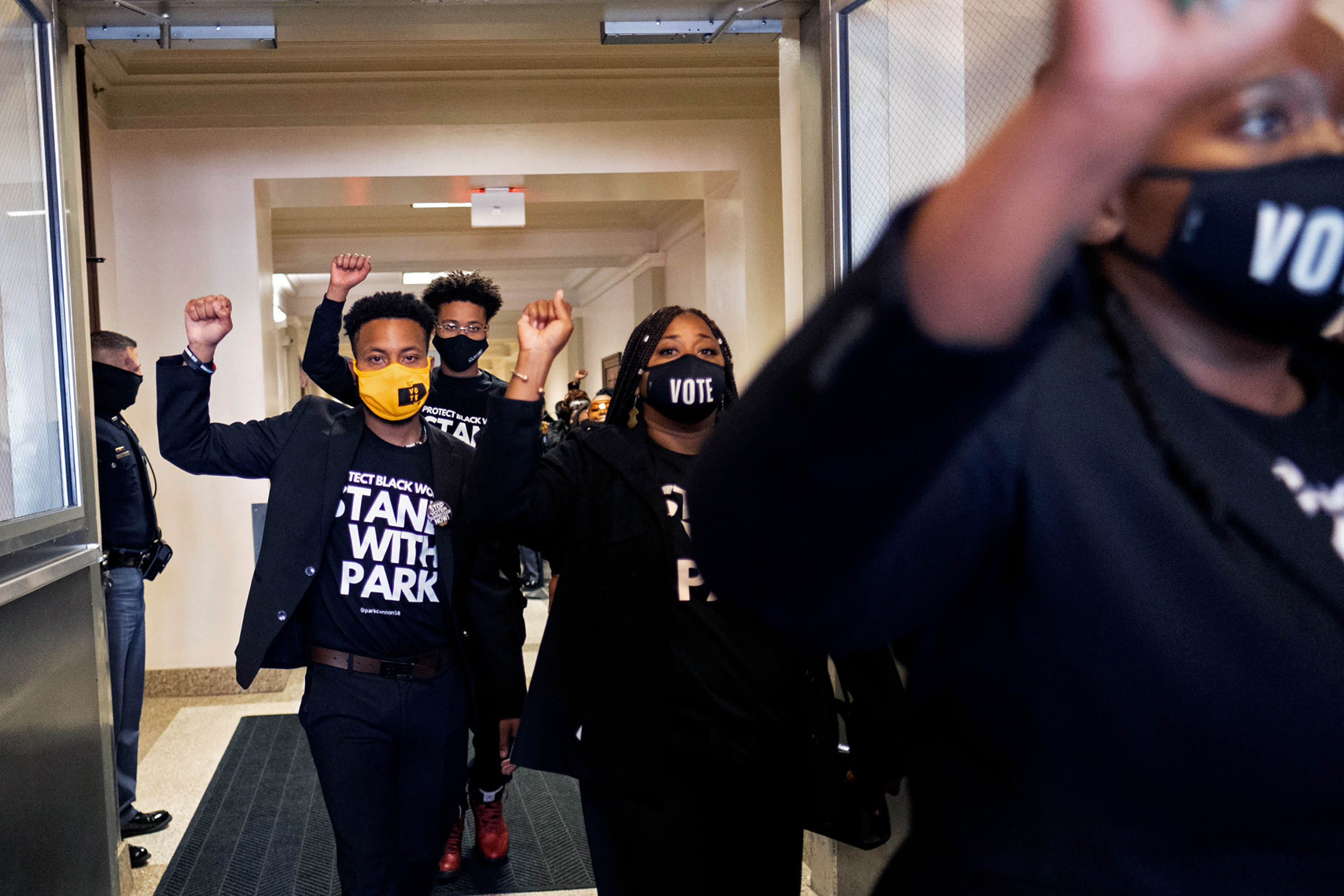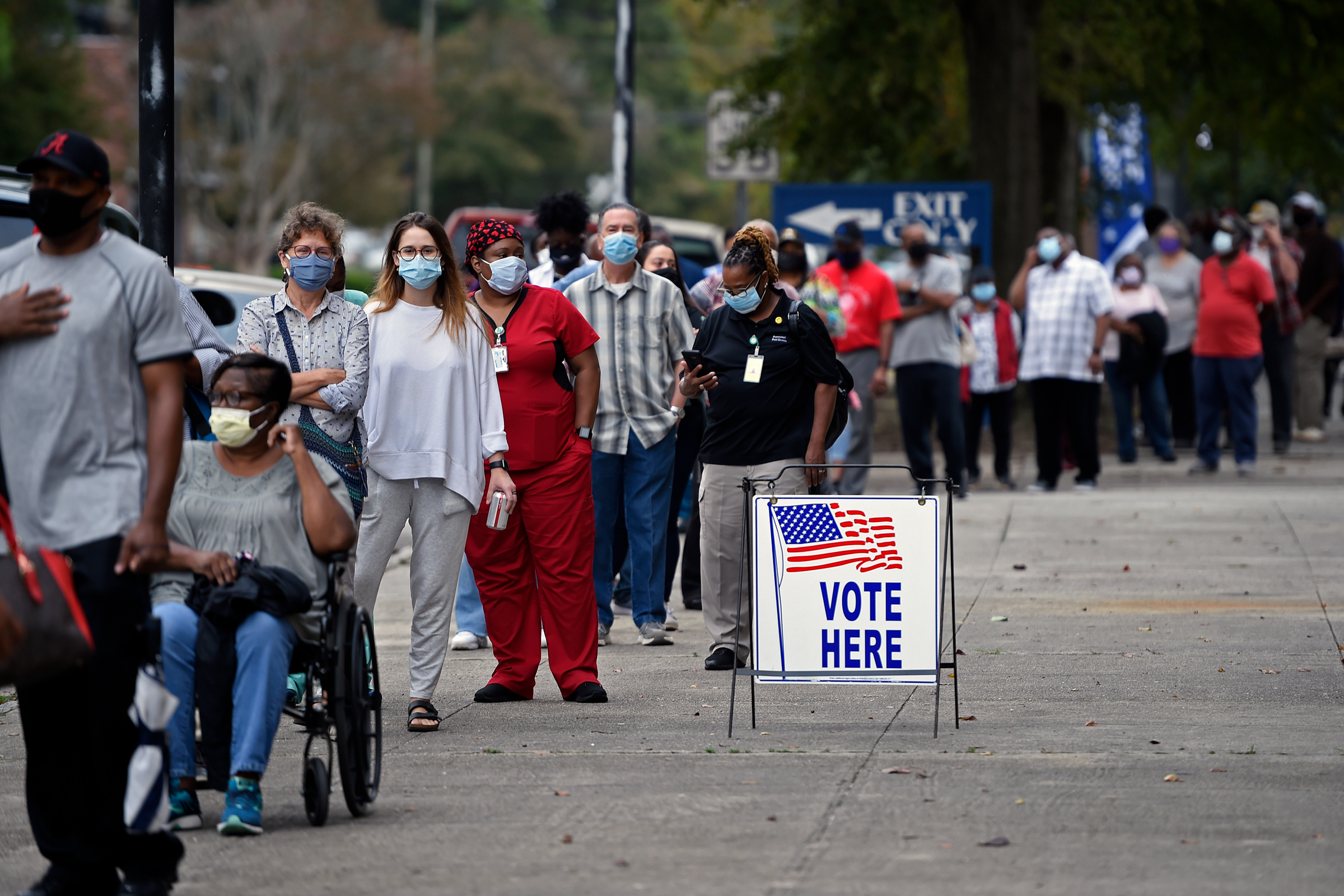
After a historic election with record-breaking participation by voters of color who turned Georgia Blue, Republicans wasted no time in changing the rules of the election process to ensure their victory for years to come. This culminated in last week’s passage of SB202, one of the most restrictive and dangerous anti-voter bills in the country.
After many rounds of amendments on the House floor over several days, the Republican-controlled legislature was determined to get SB202 to Governor Kemp’s desk in one afternoon. While this was a very disappointing and disheartening process, we were not surprised. SB202 was crafted in secret and rushed in and out of committees without meaningful input from voters, local election officials, or civil rights advocates. Why would the passage of this consequential bill be any different? Republicans only negotiated behind closed doors, rarely giving more than a couple of hours for the public—or their own Democratic colleagues—to review the many changes they made each time the bill came up for debate in committee. When the Republicans finally got what they wanted, Governor Kemp, along with several Republican leaders could be found once again behind closed doors, in front of a picture of a plantation, for a signing ceremony. The final language of the bill was only made available to the public several days after the signing.
My colleague and friend, State Representative Park Cannon, a Black woman, and duly elected member of the General Assembly, went to where the ceremony was held to illustrate the lack of transparency and integrity in this process by lightly knocking on the Governor’s door. She wanted to know why the public continued to be left out of the largest overhaul to Georgia’s election process in nearly two decades.
In what can only be described as a wild overreaction, several Georgia State Troopers almost immediately arrested, handcuffed, and humiliated Rep. Cannon, who was peacefully protesting the actions of the General Assembly. Those of us standing with Rep. Cannon when she was so roughly arrested tried to get some clarity about what we were witnessing—only to be repeatedly ignored by members of law enforcement. Rep. Cannon was eventually booked and charged with two felonies for knocking on the Governor’s door. The images of this moment continued to run through my head this past weekend, and I kept returning to one thought: history keeps repeating itself.
When we think of the Civil Rights Movement of the 1950s and 60s, we can easily conjure up images of the Jim Crow South fighting back with all its might against any small act of civil disobedience. We have all seen the black and white pictures of students, clergy, and allies being brutalized for standing up for the rights of their fellow Americans. Last Thursday, as Georgia Republicans celebrated the passage of a massive voter suppression law, a Black woman was just outside their door being arrested for her one act of minor civil disobedience.

SB202 has been aptly described as Jim Crow 2.0 because it is a transparently anti-democratic attempt to make it harder for Black and brown people, the disabled, the elderly, low-income people, and students to exercise their sacred right to vote. The historical parallels are hard to ignore.
In the Jim Crow South, voters had to overcome poll taxes, violence, purges, and tests to exercise their right to vote. Under Jim Crow 2.0, voters will have to overcome similar challenges. For example, SB202 creates a “voter fraud” hotline that could lead to voter intimidation and, at worst, political violence. The bill also imposes strict new requirements for casting an absentee ballot that will make the process more cumbersome. SB202 imposes new restrictions on ballot drop boxes make it harder for working people to vote. The bill creates modern-day equivalent of poll taxes for voters who may not have easy access to technology, identification, or transportation. And, finally, SB202 criminalizes any community support for voters by making it illegal to provide food and water to voters who may have to stand in long lines, which we can expect as counties may close polling locations to offset the enormous unfunded costs and implementation of SB202.
The Republicans at first justified their actions under the guise of cost savings, and when my colleagues reminded them that they had not actually analyzed the costs associated with SB202, they said this was simply about ensuring voter confidence in the Georgia election process. They managed to codify the Big Lie about election fraud pushed by Trump and his supporters that they all created. Just as our elders in the Civil Rights movement did, we will stand for truth and justice, and we will fight for our right to vote. We have seen this before, and we will overcome it again.

Right now, Congress is considering legislation at the federal level that will ensure free and fair elections in every single state. We can undo the damage done by Georgia Republicans by passing H.R. 1 For the People’s Act and H.R. 4 the John Lewis Voting Rights Act. We need every Georgian to stand up to these sinister attacks on our freedoms, and make sure that our two new Democratic U.S. Senators get a chance to vote on these historic pieces of legislation. It’s time to heed the words of the late Georgia Congressman John Lewis, and like my friend Rep. Cannon, get in some “good trouble, necessary trouble.”
“Do not get lost in a sea of despair. Be hopeful, be optimistic. Our struggle is not the struggle of a day, a week, or a year, it is the struggle of a lifetime. Never, ever be afraid to make some noise and get in good trouble, necessary trouble.”
—Congressman John Lewis
More Must-Reads from TIME
- Introducing the 2024 TIME100 Next
- The Reinvention of J.D. Vance
- How to Survive Election Season Without Losing Your Mind
- Welcome to the Golden Age of Scams
- Did the Pandemic Break Our Brains?
- The Many Lives of Jack Antonoff
- 33 True Crime Documentaries That Shaped the Genre
- Why Gut Health Issues Are More Common in Women
Contact us at letters@time.com